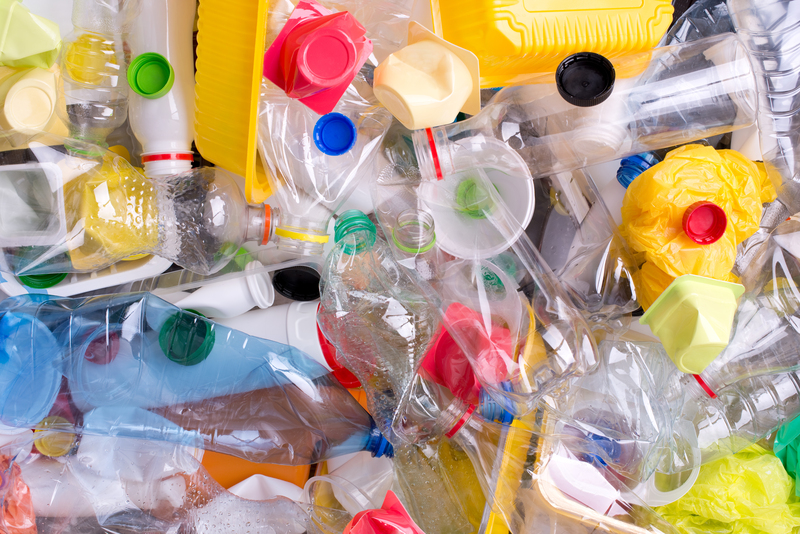London Student Sparks Conversation on Plastic Challenges
Posted on 18/05/2025

In today's world, plastic is everywhere. From our grocery bags and water bottles to our electronic devices and clothing, it has become an essential part of our daily lives. However, the convenience and versatility of plastic come with a heavy cost - its negative impact on the environment. It takes hundreds of years for plastic to decompose, and in the meantime, it pollutes our oceans, harms marine life, and even affects our health. The seriousness of this issue is often overlooked by society, but one London student is determined to change that.
An 18-year-old student from London, Jasmine Williams, recently sparked a conversation around plastic challenges through her final-year project at school. She focused on raising awareness about the detrimental effects of single-use plastics in her community. Williams not only conducted extensive research on the topic but also initiated various campaigns and workshops to educate her peers and community members about the importance of reducing plastic consumption.
Through her project, Williams was able to show the impact of plastic on the environment and how it affects every individual's daily life. She highlighted statistics such as the fact that 91% of plastic waste isn't recycled and ends up in landfills or our oceans. This causes harm to wildlife and marine animals who mistake plastic for food or become entangled in it. Furthermore, microplastics have been found even in tap water and seafood, posing a threat to human health.
Williams' project also shed light on how excessive use of plastic contributes to climate change. The production of plastic relies heavily on fossil fuels, which leads to greenhouse gas emissions. Additionally, the disposal of plastic waste releases harmful chemicals into the environment, further exacerbating climate change.
Thanks to efforts like Williams', more people are becoming aware of this pressing issue. But what can we do as individuals to reduce our use of single-use plastics? Here are some tips:
1. Use reusable bags: Bring your own reusable bags when grocery shopping to avoid plastic bags.
2. Say no to plastic straws: Americans alone use 500 million plastic straws every day. Choose alternatives like metal or paper straws or simply skip the straw altogether.
3. Switch to reusable water bottles: Invest in a reusable water bottle and refill it instead of buying plastic bottles that end up in the trash.
4. Opt for natural materials: Look for items made of natural materials, such as glass, bamboo, or metal, instead of plastic alternatives.
5. Reduce packaging waste: Try to buy products with minimal packaging or choose items with sustainable packaging materials.
Williams' project has highlighted the harmful effects of single-use plastics, but it has also sparked a much-needed conversation around this issue. The increased awareness is vital in creating a more sustainable future, but what are the pros and cons of reducing plastic consumption?
Pros:
1. Environmental benefits: By reducing our use of single-use plastics, we can help reduce pollution and protect our planet's natural resources.
2. Health benefits: A reduction in plastic usage means fewer toxins released into the environment and potentially into our bodies.
3. Economic benefits: Plastic production requires a significant amount of energy and resources, which can be reduced by using sustainable alternatives. This, in turn, can save money and create job opportunities in the sustainability sector.
Cons:
1. Convenience: For many people, plastic is synonymous with convenience. Eliminating it completely may require some lifestyle adjustments.
2. Cost: Sustainable options may be more expensive than their traditional plastic counterparts, making them inaccessible for some individuals or communities.
3. Lack of infrastructure: In some areas, there may not be proper facilities for recycling or disposing of non-plastic items, making it challenging to switch completely.
Takeaways:
1. Small changes go a long way: Every individual can make a difference by making small changes in their daily lives and encouraging others to do the same.
2. We need a collective effort: While individual actions are crucial, the government and corporations also need to take responsibility and implement policies to reduce plastic production and waste.
3. Education is key: Projects like Williams' prove that education and awareness are essential in creating a more sustainable future.
In conclusion, Jasmine Williams' project has initiated an important conversation around plastic challenges. It has highlighted the harmful effects of single-use plastics on our environment, wildlife, and health. By implementing simple changes in our daily lives, we can all contribute to reducing plastic consumption and creating a better world for ourselves and future generations. Let's all follow in her footsteps and be more mindful of the choices we make as consumers.

Latest Posts
From Eyesore to Masterpiece: When Garbage Becomes Art
Industry welcomes government's move towards increased e-waste recycling

 020 8610 9486
020 8610 9486










